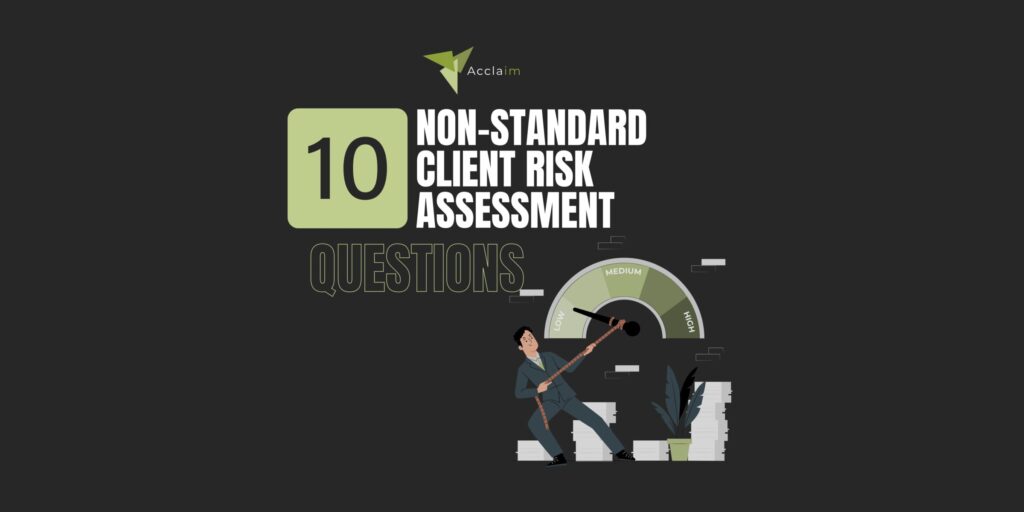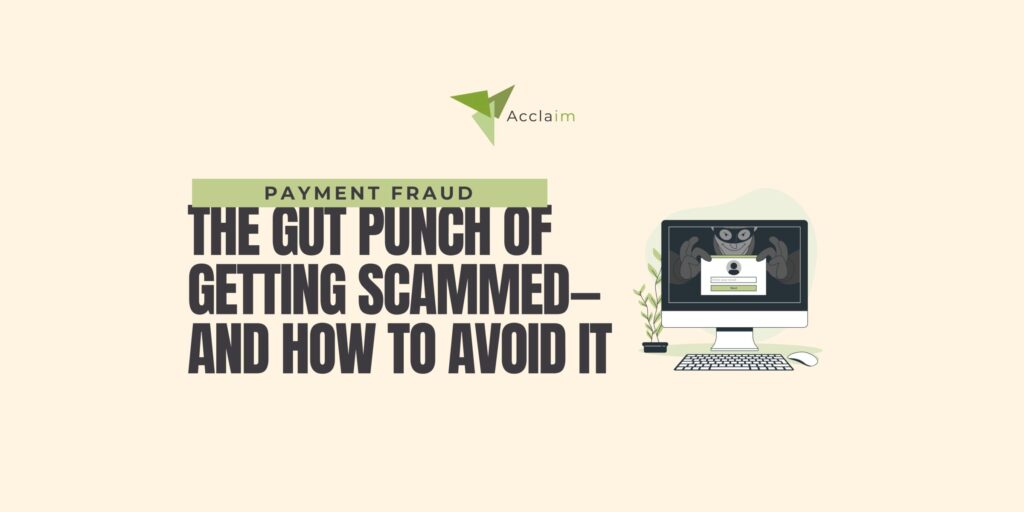
Company News
10 Non-Standard Client Risk Assessment Questions
Most client risk assessments feel like a tick-box exercise. But do they actually capture true risk?
Verifying ID documents is just the start. Do you really know your clients? Beyond standard due diligence, these 10 non-standard risk assessment questions go deeper. They help identify wealth sources, financial behaviours, industry exposure, and hidden risks.
From uncovering unusual funding sources to spotting influential connections, these questions let you detect red flags before they become compliance issues.
1. Wealth Background
“Other than your primary and standard source of wealth, have you had any major financial events recently? For example, have you sold a business, received an inheritance, or gained a large investment payout?”
This question helps uncover unexpected financial changes that might not align with the client’s profile.
2. Transaction Pattern
“Do you expect any spikes or dips in your transaction size or frequency that wouldn’t be typical for your business?”
Early insights into unusual transaction activity allow proactive monitoring. This reduces the risk of undetected suspicious behaviour.
3. International Links
“Do you have financial ties to countries with strict or limited transparency? If so, can you share more about those relationships?”
Identifying higher-risk jurisdictions helps determine if enhanced due diligence is necessary.
4. Regulatory History
“Have regulators in any country ever reviewed, inspected, or audited you? What was the outcome?”
Understanding past regulatory issues can highlight potential compliance risks.
5. Influential Connections
“Are there individuals or companies that, while not official owners, influence key decisions in your business?”
This question helps detect hidden beneficial owners or undisclosed controlling interests.
6. Unusual Funding
“Have you ever used private loans, complex trade arrangements, or other alternative financing methods?”
Uncovering less obvious funding sources ensures proper due diligence on their legitimacy.
7. Shifts in Business or Investments
“Have there been any recent changes in how you run your business or invest that could increase financial or reputational risks?”
Identifying shifts in operations allows for risk adjustments and better monitoring.
8. Industry Exposure
“Do you have financial ties to industries linked to financial crime risks, such as crypto, gaming, high-value goods, or offshore finance?”
Certain industries carry higher risks and may require closer scrutiny.
9. Media or Legal Mentions
“Has your name, business, or any associated individual appeared in media reports related to financial issues, legal matters, or regulatory concerns?”
Assessing reputational risks helps prevent future compliance challenges.
10. Future Planning
“If a major disruption occurs, how will you ensure financial and regulatory commitments are still met?”
A strong business continuity plan reduces risks of sudden financial distress.
Final Thought
These questions apply across finance sectors. They help prevent surprises and ensure early detection of compliance risks. By asking the right questions, you gain better insights and stronger risk management.
Share This Article





